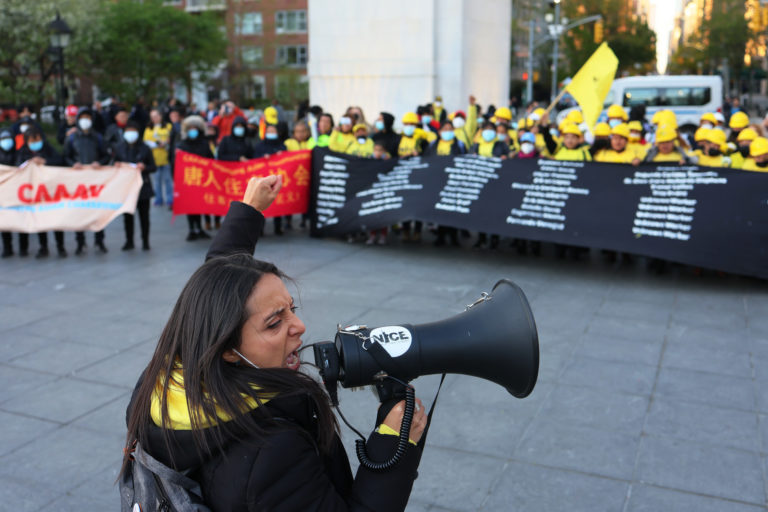Ross Evans is a student at Harvard Law School and a member of the Labor and Employment Lab.
As we covered yesterday, AFL-CIO president Richard Trumka recently questioned the feasibility of a trade deal that included Mexico but not Canada –a scenario President Trump has suggested is under consideration. Additionally, Trumka stated that Trump has “done done more to hurt workers than to help.” In response, yesterday morning, President Trump began his Labor Day by criticizing Trumka on Twitter (note: the linked version of the Tweet is a revised version of his original, since-deleted Tweet, which contained a typo). Specifically, President Trump stated both that Trumka’s comments “were so against the working men and women of our country” and that “it is easy to see why unions are doing so poorly.” Politico argues, however, that obtaining support from organized labor will likely be necessary for President Trump to receive congressional approval for any revamped version of Nafta.
In an OnLabor article published yesterday, Professor Benjamin Sachs and Sharon Block, OnLabor’s Editor in Chief and Senior Contributor, respectively, explain both why they are leading a new project at Harvard Law School to “rebuild labor law form a clean slate” (the Clean Slate project) and what the central tenets of the project are.
The Wall Street Journal explains how labor shortages are leading many companies to invest more resources in retraining their existing employees to work in more sophisticated roles. Indeed, per the National Association of Manufacturers, “[t]wo-thirds of manufacturers plan to increase training in the next year.”
A myriad of labor-related opinion pieces were published yesterday:
- In Bloomberg Opinion, Justin Fox argues that Nordic countries’ significantly higher union membership rates can be partially attributed to “Ghent system countries” such as Denmark, Sweden, and Finland, “where unions administer [] unemployment insurance program[s] with help from government subsidies.”
- In The Washington Post, economists Jared Bernstein and Dean Baker assert that labor unions are critical to combating increased economic inequality in the United States. To support their position, Bernstein and Baker cite a recent empirical study from May 2018 that illustrates the inverse relationship between per capita union membership and economic inequality.
- In The Gazette (Cedar Rapids, IA), Lynda Waddington details the historic and critical role women have played in the labor movement, and reminds readers that Labor Day is not only about workers rights, but it is also “a moment to consider the inclusion of women in the workplace; recognition that discrimination against women on the basis of sex not only is illegal but wrong; and understanding the fight for women’s workplace equality is not just a women’s issue.”
- In Esquire, Charles Pierce writes that “The Attack on Labor Itself Begins Tuesday” as the Senate Judiciary Committee commences hearings around Judge Brett Kavanaugh’s Supreme Court nomination. Pierce calls Kavanaugh’s labor record “every bit as retrograde as any other part of his Federalist Society bona fides.”
- In USA Today, Trey Kovacs, a labor policy analyst for the Competitive Enterprise Institute, explains why both labor and management advocates would benefit from a repeal of “exclusive representation, which grants unions monopoly status to represent and negotiate on behalf on all the employees at a workplace.”






Daily News & Commentary
Start your day with our roundup of the latest labor developments. See all
December 22
Worker-friendly legislation enacted in New York; UW Professor wins free speech case; Trucking company ordered to pay $23 million to Teamsters.
December 21
Argentine unions march against labor law reform; WNBA players vote to authorize a strike; and the NLRB prepares to clear its backlog.
December 19
Labor law professors file an amici curiae and the NLRB regains quorum.
December 18
New Jersey adopts disparate impact rules; Teamsters oppose railroad merger; court pauses more shutdown layoffs.
December 17
The TSA suspends a labor union representing 47,000 officers for a second time; the Trump administration seeks to recruit over 1,000 artificial intelligence experts to the federal workforce; and the New York Times reports on the tumultuous changes that U.S. labor relations has seen over the past year.
December 16
Second Circuit affirms dismissal of former collegiate athletes’ antitrust suit; UPS will invest $120 million in truck-unloading robots; Sharon Block argues there are reasons for optimism about labor’s future.